The following analysis of select counties of the Central Washington real estate market is provided by Windermere Real Estate Chief Economist Matthew Gardner. We hope that this information may assist you with making better-informed real estate decisions. For further information about the housing market in your area, please don’t hesitate to contact your Windermere Real Estate agent.
Regional Economic Overview
Central Washington has added 5,558 jobs over the past 12 months, which represents an annual growth rate of 2.5%. With the addition of these jobs, the area has now returned to its pre-pandemic employment levels. Although the Central Washington region has seen a full recovery, Kittitas County is still lagging with a shortfall of 2,600 jobs. Adjusted for seasonality, unemployment levels in Central Washington were 5.4%, down from 6.2% a year ago. The lowest unemployment rate was in Chelan County, where it was 3.9%. The area’s highest jobless rate was in Yakima County, where 6% of the labor force was still without work.
Central Washington Home Sales
❱ Sales in Central Washington fell 2.2% from the second quarter of 2021. A total of 1,359 homes sold, which was lower than a year ago but 33% higher than the first quarter of 2022. The spring housing market was clearly a busy one.
❱ Pending sales, which are an indicator of future closings, rose more than 70% compared to first quarter. This suggests that closings in the third quarter will likely be strong.
❱ Year-over-year, sales rose in Douglas, Yakima, and Okanogan counties, but fell in Chelan and Kittitas counties. However, compared to the first quarter of 2022, sales rose significantly across the board.
❱ Inventory levels rose more than 36% year over year and were up 82% from the first quarter. There are considerably more choices in the market, which is good news for buyers.
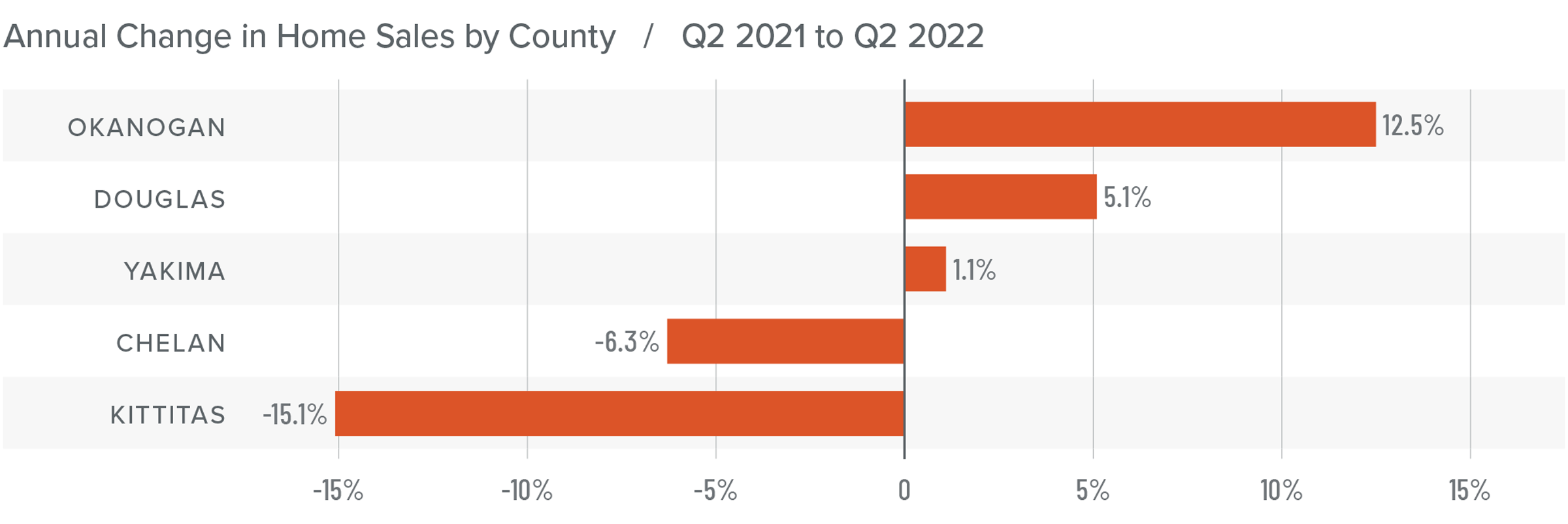
Central Washington Home Prices
❱ The average home price in Central Washington rose 12.2% year over year to $521,894. Prices were 3.9% higher than in the first quarter of this year.
❱ I have been watching list prices as they are a leading indicator regarding the direction the market may take. Median list prices were an average of 10.7% higher than in the first quarter. Only Kittitas County saw asking prices pull back, but I do not see this as a concern at the present time.
❱ Only Douglas County saw year-over-year prices rise by less than 10%. Compared to the first quarter, prices rose in three counties, but fell modestly in Kittitas and Douglas counties.
❱ Although interest rates rose to an average of more than 5.5% by the end of second quarter, sellers still appear to be confident in the market. This was demonstrated by rising list prices even in the face of more competition with the increase in inventory.
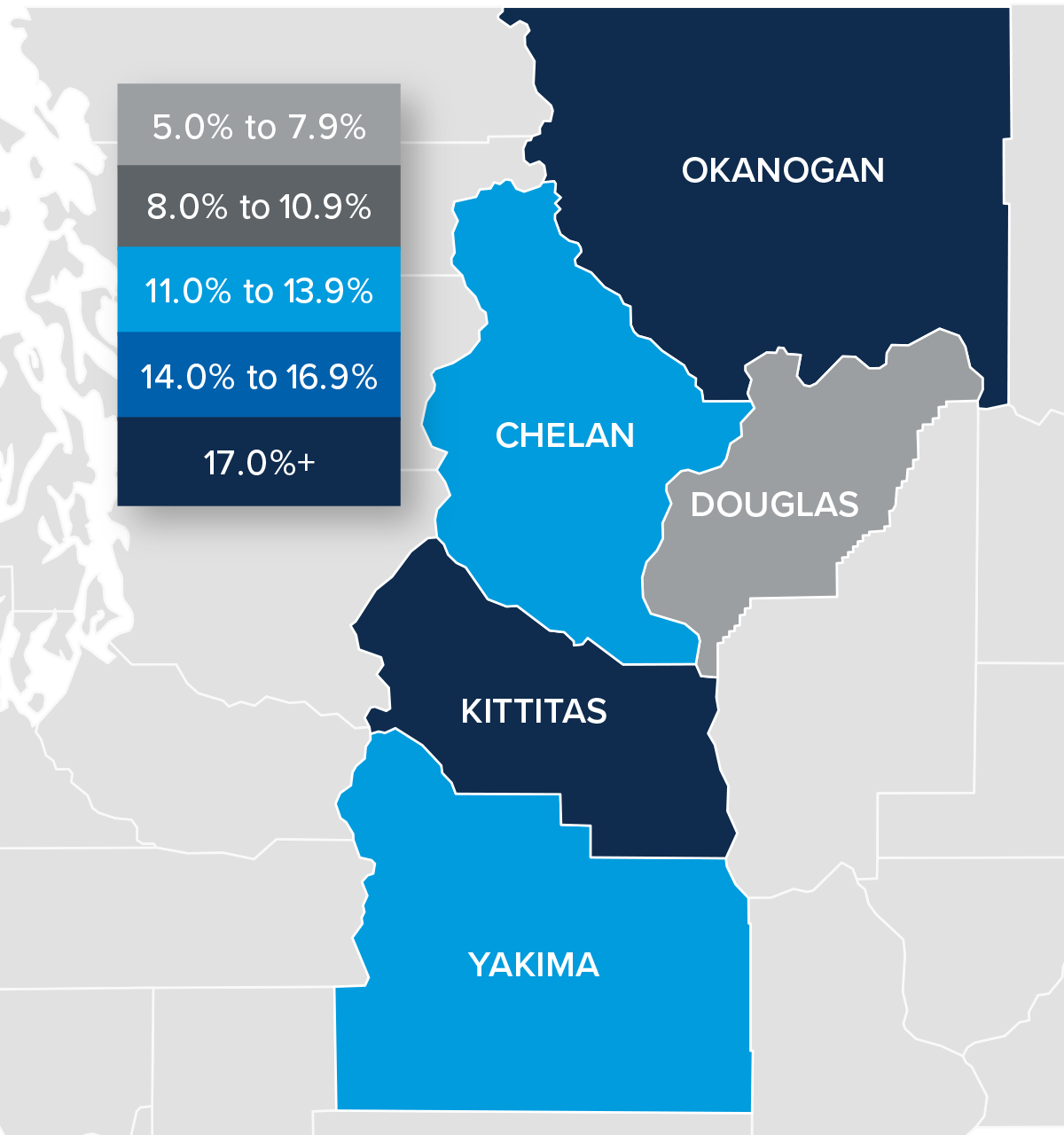
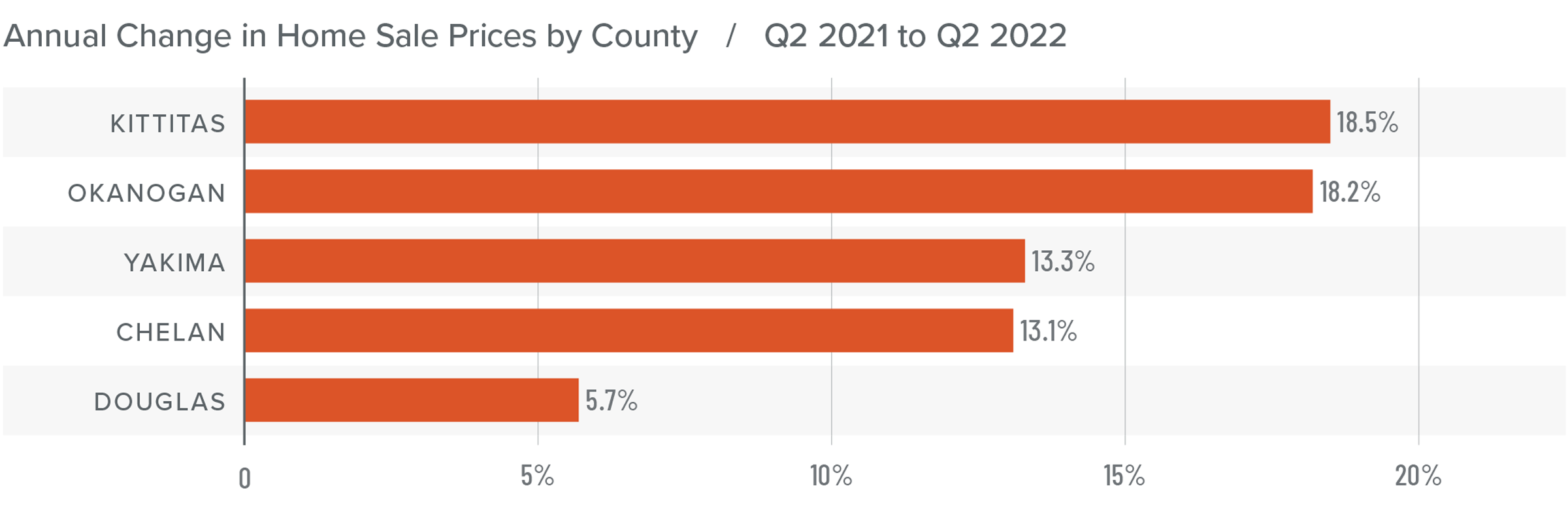
Mortgage Rates
Although mortgage rates did drop in June, the quarterly trend was still moving higher. Inflation—the bane of bonds and, therefore, mortgage rates—has yet to slow, which is putting upward pressure on financing costs.
That said, there are some signs that inflation is starting to soften and if this starts to show in upcoming Consumer Price Index numbers then rates will likely find a ceiling. I am hopeful this will be the case at some point in the third quarter, which is reflected in my forecast.
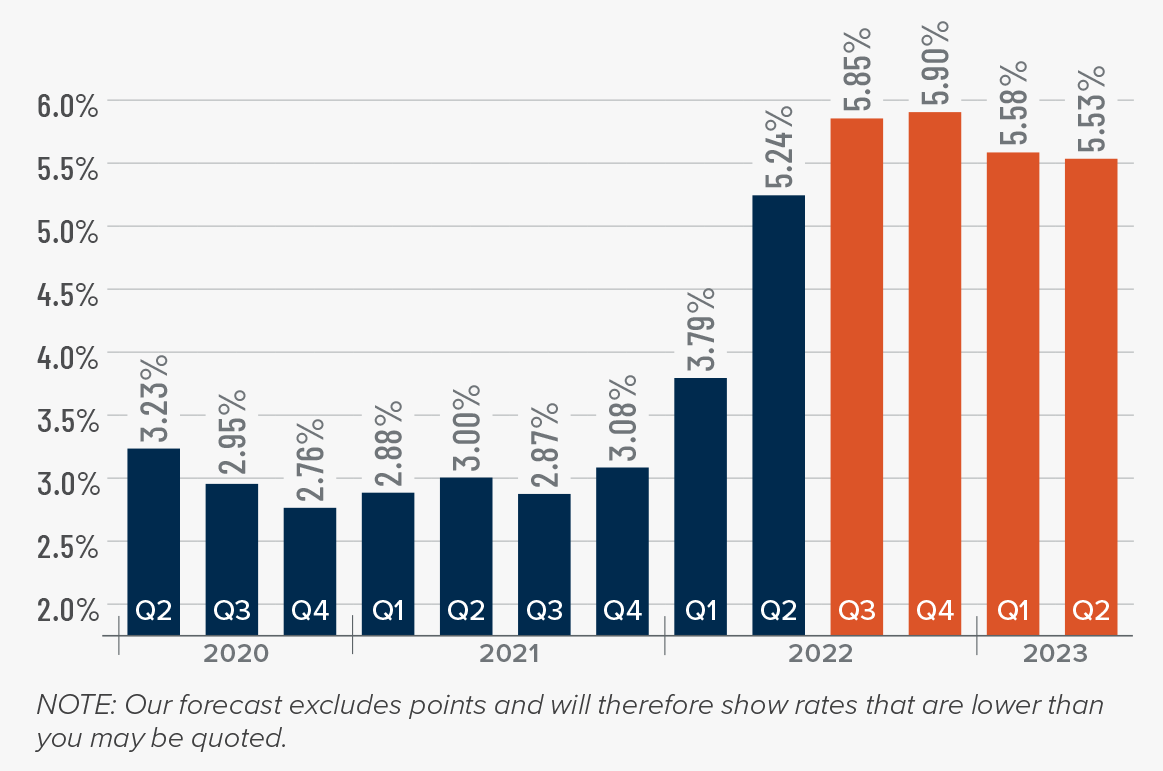
Central Washington Days on Market
❱ The average time it took to sell a home in Central Washington in the second quarter was 31 days.
❱ During the quarter, it took six fewer days to sell a home in Central Washington than it did a year ago.
❱ Two counties saw the length of time it took to sell a home drop compared to a year ago. Kittitas and Douglas counties saw no change and market time in Chelan County was up five days. Compared to the first quarter of 2022, market time fell across the region.
❱ On average, it took 24 fewer days to sell a home in the second quarter than it did in the first.
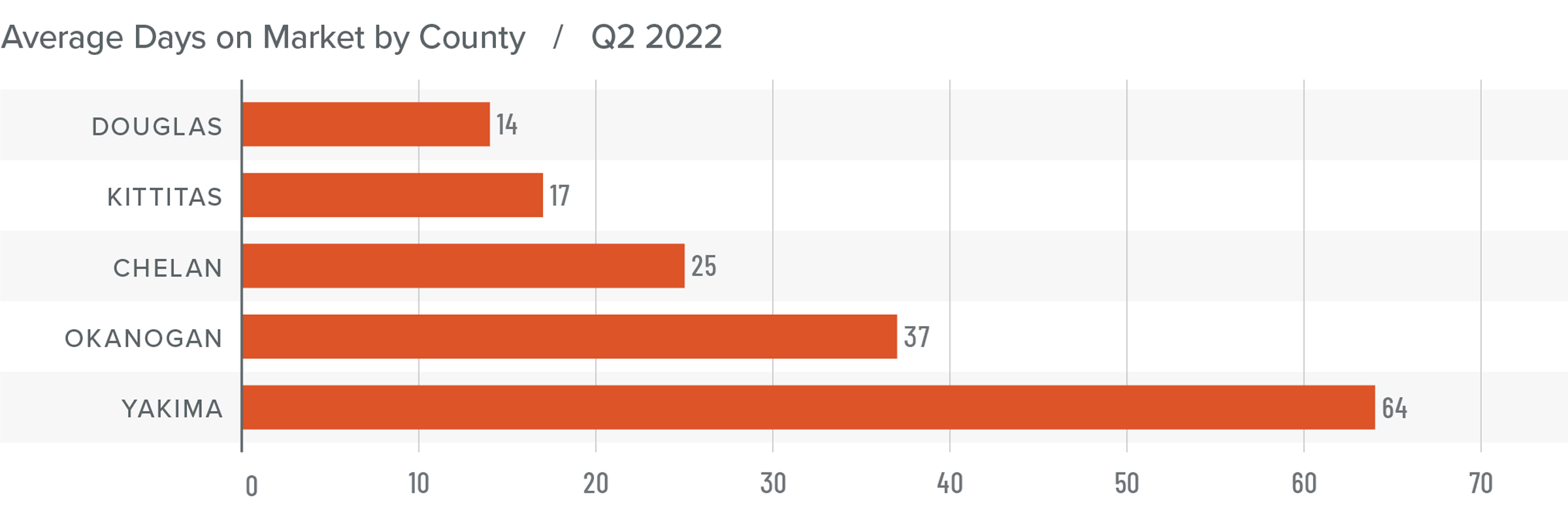
Conclusions
This speedometer reflects the state of the region’s real estate market using housing inventory, price gains, home sales, interest rates, and larger economic factors.
Jobs continue to be added to the local economy and the labor force is expanding, which are both positive for the housing market. Inventory levels have risen significantly, but data on pending sales and market time suggests that the market is still buoyant. List-price growth suggests that sellers are still confident even with rising interest rates and considerably more homes for sale. However, the pace of home-price appreciation is starting to cool, which may be of some solace to home buyers.

All things considered, I have decided to move the needle a little more in the direction of home sellers. The market is going to start moving, albeit slowly, toward some sort of balance, but for the time being, sellers remain in control.
About Matthew Gardner

As Chief Economist for Windermere Real Estate, Matthew Gardner is responsible for analyzing and interpreting economic data and its impact on the real estate market on both a local and national level. Matthew has over 30 years of professional experience both in the U.S. and U.K.
In addition to his day-to-day responsibilities, Matthew sits on the Washington State Governors Council of Economic Advisors; chairs the Board of Trustees at the Washington Center for Real Estate Research at the University of Washington; and is an Advisory Board Member at the Runstad Center for Real Estate Studies at the University of Washington where he also lectures in real estate economics.
 Facebook
Facebook
 X
X
 Pinterest
Pinterest
 Copy Link
Copy Link



